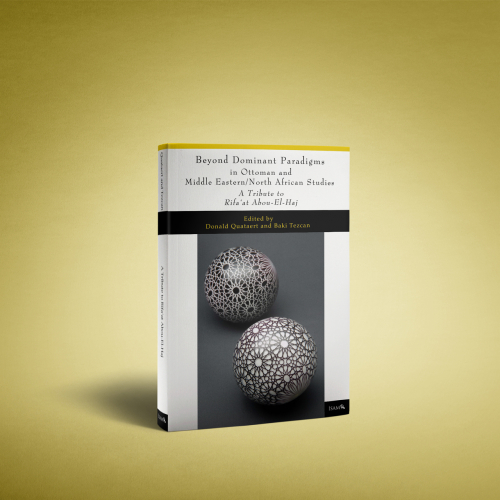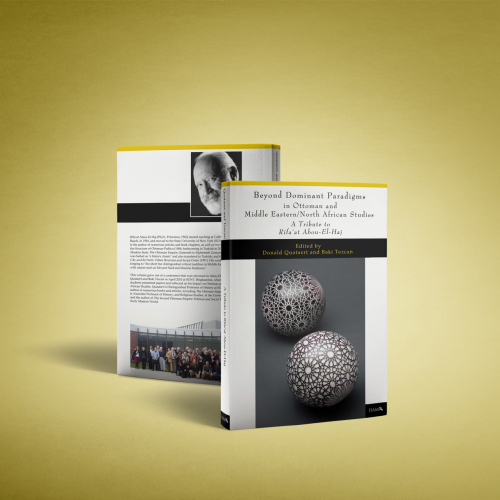Beyond Dominant Paradigms in Ottoman and Middle Eastern/North African Studies –A Tribute to Rifa’at Abou-El-Haj
Rifa‘at Abou-El-Haj (Ph.D., Princeton, 1963) started teaching at California State University, Long Beach, in 1964, and moved to the State University of New York (SUNY), Binghamton, in 1992. He is the author of numerous articles and book chapters, as well as two books, The 1703 Rebellion and the Structure of Ottoman Politics (1984; forthcoming in Turkish in 2011) and Formation of the Modern State: The Ottoman Empire, Sixteenth to Eighteenth Centuries (1991; 2nd ed., 2005), which was hailed as “a history classic” and also translated to Turkish; and the co-editor of The Ottoman City and Its Parts: Urban Structure and Social Order (1991). His work has been considered as belonging to “the short but distinguished critical tradition in Middle Eastern history that is associated with names such as Edward Said and Maxime Rodinson.”
This volume grew out of a conference that was convened in Abou-El-Haj’s honor by Donald Quataert and Baki Tezcan in April 2010 at SUNY, Binghamton, where his colleagues and students presented papers and reflected on his impact on Ottoman and Middle Eastern/North African Studies. Quataert is Distinguished Professor of History at SUNY, Binghamton, and the author of numerous books and articles, including The Ottoman Empire, 1700-1922; and Tezcan is Associate Professor of History, and Religious Studies, at the University of California, Davis, and the author of The Second Ottoman Empire: Political and Social Transformation in the Early Modern World.
The contents of the volume were first published in the Journal of Ottoman Studies / Osmanlı Araştırmaları 36 (2010), also an İSAM publication.
Table of Contents:
Preface – Donald Quataert
Part I – Middle Eastern / North African Studies
Mahmood Ibrahim, Crime and Punishment in Mamluk Damascus
Ali Abdullatif Ahmida, Post-Orientalism and Colonialism: A Critical Mapping of Maghribi Studies (1951-2000)
Peter Gran, The Rise of the West or the Rise of the Rich: The Question of an Alternative to Orientalism
Part II – Ottoman Studies
Suraiya Faroqhi, Empires before and after the Post-colonial Turn: The Ottomans
Palmira Brummett, Placing the Ottomans in the Mediterranean World: The Question of Notables and Households
Heath Lowry, The ‘Soup Muslims’ of the Ottoman Balkans: Was There A ‘Western’ & ‘Eastern’ Ottoman Empire?
Baki Tezcan, Some Thoughts on the Politics of Early Modern Ottoman Science
Rula Jurdi Abisaab, The Shi‘ite ‘ulama’, the madrasas, and Educational Reform in the Late Ottoman Period
Mustafa Aksakal, Why did the Ottomans enter a European War in 1914? New sources, new views
Part III – Post Ottoman Studies
Christine Philliou, ‘Mad’ about Kemalism: An Early Republican Satire
Dina Rizk Khoury, Where are the Ottomans in the Historiography of the Twentieth Century Fertile Crescent?
Janet Klein, Minorities, Statelessness, and Kurdish Studies Today: Prospects and Dilemmas for Scholars
Click to buy.

